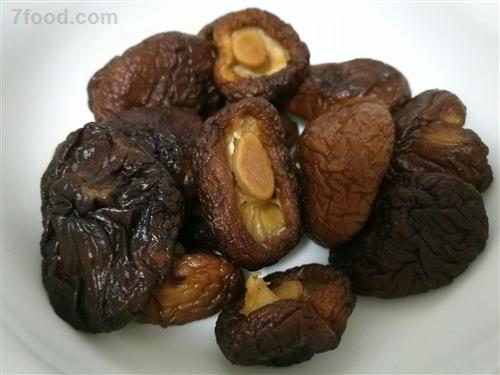When the chilling season comes and the weather is cold, it is not necessary to eat more meat and eat vegetables and health. What kind of vegetables do you eat for the chill? 1. Cabbage The content of vitamin C in Chinese cabbage is as high as 30mg-40mg/100g, which is a high content in similar vegetables. Vitamin C has the effect of skin care, coupled with the high moisture content of Chinese cabbage, so Chinese cabbage is an essential winter vegetable. To remind everyone that when cooking cabbage, try to choose vinegar, because vitamin C will be better preserved in an acidic environment. 2, white radish As the saying goes, "If you eat radish in summer and eat ginger in winter, don't call a doctor to prescribe medicine." Winter is a good time to eat radish. In winter, the amount of people's activities is reduced, and it is easy to produce food. The radish can not only heat but also help digestion and stagnation. It will not only get angry, but also play a very good nutritional nourishing effect, which is undoubtedly a good choice. 3, mushrooms Regular consumption of mushrooms can promote the body's absorption of other foods. Mushrooms contain multiple vitamins. Many of the mushrooms contain carotene, which can be converted into vitamin A in the human body. Therefore, mushrooms have the name “vitamin A treasure houseâ€. Research reports show that mushroom vitamin A content is very high. If you eat mushrooms in winter, you can effectively prevent colds. 4, pumpkin Pumpkin is rich in crude fiber, vitamin A and retinol. For those who work overtime and stay up late, the computer family has a good effect of nourishing the liver and reducing the fat. In addition pumpkin contains more potassium, and potassium and sodium ratio. Calcium-magnesium ratio is very reasonable, can balance body fluid salt concentration, drainage eliminate edema. 5, red pepper Capsaicin in pepper promotes metabolism, helps the body resist cold and moisture, and also helps reduce the risk of heart disease and atherosclerosis. Eating spicy food can also quickly satisfy people and eat less. Need to be reminded that spicy food should also have degrees, otherwise it will be counterproductive (yiqiG.cn). 6, parsley Chinese medicine believes that parsley is spicy, warm, into the lungs, spleen, diarrhea and rash, eliminate the power of the next gas, apply to colds, pediatric measles or rubella through poor hair, dietary stagnation, indigestion and so on. Parsley contains volatile oil, vitamin C, potassium malate and so on. The aroma of coriander is caused by the volatile oil composed of alcohols and alkenes and potassium malate. After eating, it can increase the secretion of gastric juice, increase appetite, regulate gastrointestinal motility, and improve digestion. 7, sweet potato Eating hot and sweet sweet potatoes in winter is the most pleasant thing. Sweet potatoes are rich in carbohydrates, dietary fiber, carotene, vitamins, and more than 10 trace elements such as potassium, magnesium, copper, selenium, and calcium. In addition, sweet potatoes are rich in potassium, which can effectively prevent high blood pressure and prevent stroke. 8, spinach Spinach is a good health food. It is sweet, pungent, cool, enters the intestine and stomach, and has the effects of nourishing yin and calming the liver, strengthening the intestines and quenching thirst, supplementing blood and stopping bleeding, transfusing blood, aiding digestion, and benefiting the five internal organs. It can nourish the liver and nourish blood, and it can also improve the human body. Metabolism, enhance the role of human resistance. 9, lotus root Lotus roots are usually mature in the winter, so winter is the best time to eat lotus roots. Compared with other seasons, the lotus in winter is more tender and delicious, and has higher nutritional value. Chinese medicine believes that lotus root sweet and cool, can heat and fluid, cooling blood to stop bleeding, replenishing the twelve meridians blood gas, flat body overheating Yang Sheng, Huo-wang, cooked lotus root can replenish the spleen and stomach, diarrhea, beneficial blood, myogenic. 10. Yam Yam is a tonic of food and medicine homology, especially suitable for winter health food. Its nature is flat, sweet, with a variety of effects such as spleen and tonifying lungs, Yishen Gujing and so on. The yam mucus contains choline, which prevents body fat from depositing on the vessel wall, maintains blood vessel elasticity, prevents atherosclerosis, and strengthens the connective tissue of the liver and kidneys to maintain the lubrication of the digestive tract, respiratory tract, and joint cavity. 11. Ginger Ginger contains a variety of active ingredients, according to traditional Chinese medicine theory, ginger has detoxification, gallbladder, anti-inflammatory, phlegm dampness and blood circulation, warm stomach, vomiting, eliminating edema, eliminate body rubbish and so on. Ginger contains volatile oil, which can accelerate blood circulation. Ginger contains gingerol, which has the function of stimulating secretion of gastric juice, excitatory intestinal tract, and promoting digestion. Ginger also contains gingerol, which can reduce the occurrence of gallstones. 12, carrot Cold and dry winter is the season when stomach diseases can easily recur. Eating more carrots can help stomach. The secret of stomach-enriching carrots is that they are rich in carotenoids, which are able to refresh their eyes and nourish the stomach. That is, the Chinese Medical Institute believes that: Under the gas to fill in, benefit spleen, run the stomach, security five internal organs. Blood Purification,Hemodialysis Concentrate Liquid,Hemodialysis Concentrate Powder,Extracorporeal Blood Circuit Shandong Qidu Pharmaceutical Co., Ltd. , https://www.qdyypharma.com